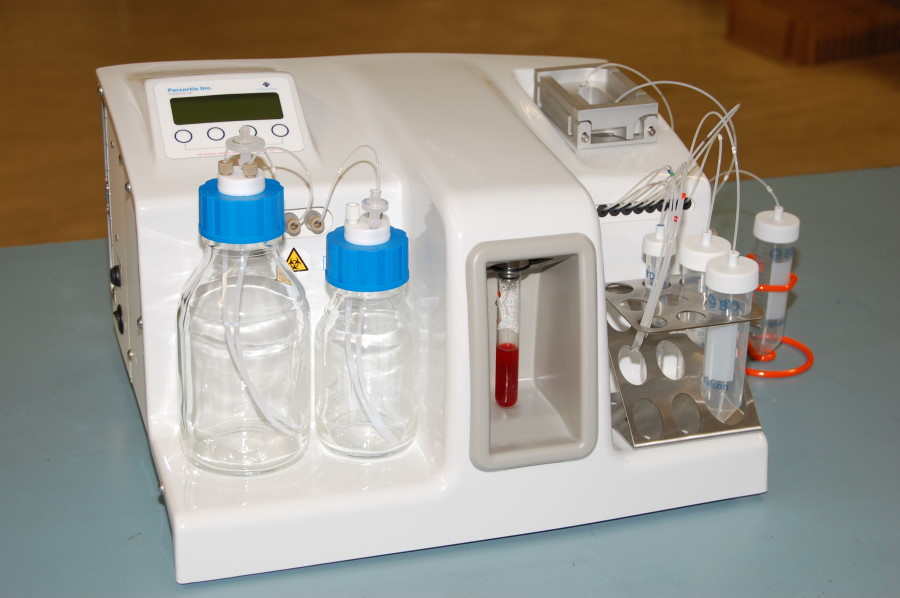Angle claims FDA okay for Parsortix liquid biopsy system

After more than six years of development, Angle has scored an FDA approval for Parsortix as a diagnostic for metastatic breast cancer – the first ever in the US for a device used to detect cancer by harvesting cells from a patient blood sample.
In a statement, the UK medical device firm said its "liquid biopsy" approach "offers the prospect of a new era of personalised cancer care" and moves it closer to positioning Parsortix as a go-to technology for assessing cancer status in patients.
It is the first company in the world ever to have achieved an FDA product clearance for harvesting intact cancer cells for analysis.
Shares in the company rose 57% in the wake of the approval, which means that Angle can start selling its system to clinics in both the US and Europe, where it has a CE mark.
The green light gives the company a foothold in the emerging market for liquid biopsies, which has seen a handful of FDA approvals starting with the CellSearch CTC system in 2013 and followed by additional diagnostics from Roche and Grail.
The overall liquid biopsy market is expected to grow from a value of around $8 billion last year to more than $26 billion in 2030, according to data from Precedence Research.
Angle's entry into the market is somewhat in a category of its own, with the device making it possible for repeat, non-invasive monitoring of people with cancer from intact living cells rather than from circulating tumour DNA from fragments of dead cells.
That's important as cancer changes over time, so "legacy information" from an original tissue biopsy becomes obsolete over time as the tumour develops, said Angle's CEO Andrew Newland on a conference call this afternoon.
The Parsortix device has the potential to become the "de facto standard" for this type of testing in cancer, helping to tailor treatment to patients with the potential to improve outcomes and reduce healthcare costs, he told analysts.
In cancer, "most drugs only work for approximately 20% of patients, so 80% of the time patients are given toxic drugs which do not actually benefit the patient [which] wastes a lot of healthcare expenditure."
Current guidance calls for patients with tumours that have spread to other parts of the body have additional biopsies to check the status of the metastases. However, that requires a further invasive procedure that may be too much for the patient to tolerate – and which can be sidestepped using Parsortix, said Newland.
A biopsy of metastatic sites costs around $16,000, and while Angle hasn’t divulged its pricing plans for Parsortix' clinical applications for research purposes the single-use test costs around $100.
That is of course on top of the cost of buying the analytical instrument, which previously has been sold for research applications at around $50,000.
The initial approval in metastatic breast cancer will be followed by further marketing applications for other tumour types, and Angle is also hoping to work with other organisations to develop new applications for the system.
The company has estimated that the potential market for Parsortix in metastatic breast cancer patients alone is in excess of $500m per year in the US alone.
It also plans to set up its own clinical labs that will offer Parsortix tests to hospitals and other customers, and expects the FDA approval to accelerate the take-up of its Parsortix-based pharma services business, which currently has five customers using the system for research purposes.











